- Home
- Emmy Ellis
Murder Game Page 7
Murder Game Read online
Page 7
Nothing was there. He shrugged and turned, thinking he’d have a little peep over Mo’s fence. He’d heard from Vicky Staff earlier—and she’d heard it from Sarah, who had heard it from Nora, who had heard it from Julia—that the stupidly named dog, Juno, had been found dead last night under a rockery. That had been the first time Ted had any inkling Mo had a rockery, but he consoled himself with the fact that he couldn’t know everything, nor should he. Yet the knowledge that his neighbour had imparted gossip to him and not the other way around had hurt a bit. He prided himself in gathering news and he was clearly slipping in his old age.
He nosed over the fence. There was no rockery. A large stone, yes, but hardly anything to warrant such a name.
“Sad, isn’t it, Ted?”
Ted jumped, let out a wimpy noise, and stared at his neighbour. “Yes.” He cleared his throat. “Poor dog, yes.”
“No, not the dog. I was thinking of Mo. I’m sure I just saw her wandering in the woods. That’s why I came out here.”
“In the woods? Whatever would she be doing that for?”
“Well, she’s mad, isn’t she? Maybe she went home, saw there’d been a fire, and didn’t know what to do. People—you can never be sure what reaction they’ll give to disturbing things. She could have panicked, forgetting she had a friend in Julia—in all of us—and her mind went crazy, sending her out the back. Think about it. The last memory she had was of going to find Juno in the woods.”
Ted nodded. His neighbour could well be right.
“Ah, so she’s gone in there to find him again, the time in between lost to her.” He stroked his chin. Slid his hands in his cardigan pockets. Felt the envelopes. “Yes, that would make sense. Right, I have to go. I only came out to check the post box, make sure it wasn’t full.”
Movement at the entry end of the lane caught his eye. Shadowy figures huddled around the post box, and he grunted his annoyance.
“Bloody hell,” he said. “Those kids are at it again.”
“So naughty, they are,” his neighbour said.
The people ran away, laughing and whooping, out of sight. A car screeched—their getaway vehicle, he’d bet—startling Ted so much his legs wobbled. The tyres burning rubber on the street sounded ominous, threatening, and he had to admit if he wasn’t here with his good neighbour he’d have been quite frightened.
“Off with the spoils,” he said, turning back to his former position.
“They are indeed.” The neighbour’s head inclined. “Would you mind… I know it’s cold out and everything, but would you mind coming with me for a few minutes? I want to check whether that was Mo in the woods, but I don’t fancy going in there by myself. It being dark and everything.”
Ted thought of his slippers, how damp the ground was in there. He was going to get wet socks and feet, and he’d catch a chill without a coat on, but if Mo was in there, demented, haring around… Emily would want him to find her. His neighbour had been sensible, dressing in some plastic suit or other, black, which rustled with each movement. Who was he to question the fashion? It changed so much over the years he didn’t think any outfit would shock him these days.
Ted nodded and followed the neighbour into the woods.
“She could be anywhere by now,” Ted said, navigating over the rough ground, his cane a handy aid. “And if she was running we might not catch up to her.”
“Oh, I’m sure she wouldn’t have run fast enough—if she went towards town—to have reached there yet.”
“I can’t go all that way,” Ted said, about to add that his hip wouldn’t like it but remembering not to just in time.
They reached a large log.
The neighbour stopped. “There, did you see that?”
Ted squinted, staring through the trees behind the log. They were too thick for him to see anything but trunks, one after another, lines of soldiers, reminding him of the war. “No. See what?”
“White—a white piece of clothing, just like I saw Mo in earlier. Come on, we need to see if it’s her.”
Ted followed again, buoyed by the excitement of doing something different. The ground was boggy in places, his slippers sinking deep. His feet got wet and cold, and he made a mental note to dig out a new pair of slippers Hilda had given him. He’d stored them on the top shelf of his wardrobe, had kept them in the box so they didn’t get dusty. Tartan, they were, with elastic side panels. The ones he wore now wouldn’t be fit for anything by the time he got home. Shame. They’d been the most comfortable he’d ever had.
“Again,” the neighbour said. “I saw that white again.” A finger was pointed. A nod given. The neighbour made a movement beside him—a dip of the knees and an arm going behind a tree trunk. “See her?”
Ted couldn’t see anything white at all—until a shock of pain clipped his temple. He blinked, seeing nothing but white now, stars, so many of them, merging into a bright mass. He lurched to the side, away from the neighbour, wishing he’d gone the other way so he could be caught if he fell.
“Are you all right, Mr Gancy?”
“No, I…”
He collapsed to his knees, clutching his now useless cane, which he felt sinking into the ground from the weight of him pushing on it one-handed. Swirls of colour joined the whiteness—fireworks?—and an aching, terrible throb pummelled his head. Raising his free hand, he pressed his palm to his cheek. It was wet. Had one of those infernal magpies perched on an evergreen branch, shaking off a shower of water? He hadn’t felt it trickle onto him, and it if had it would have been cold. This wetness was…warm. Hot, even.
Tears? Was he crying? His eyes tended to water often lately. He reached up to feel his face, ghosting his fingertips over his skin. Both eyes and his other temple were dry. What then? What was this warm dampness?
“It hurts,” he moaned. “My head hurts.”
“I’ll help make that pain go, Ted.”
Oh, thank God…
He waited to be pulled to his feet, to be helped back towards the lane, but his cane was whipped away. He flopped forward, the journey towards the ground swift, and landed face-first in the dead, mouldering leaves. He thought of the birches opposite his house, of how he liked to look at them, watch the seasons change how they dressed. He thought of his chair beside the fire and Emily waiting at home in hers—they matched, those chairs. She certainly wasn’t here—he didn’t feel her presence at all. Loneliness and panic spiralled through him, and he lost the ability to think for a moment as the shock of being so alone, despite the neighbour being with him, settled into his bones.
Why had Emily deserted him at a time when he really needed her?
He turned his head to one side so he could breathe, but a wet leaf was intent on smothering him. Its large, damp shape brought a maple tree to mind, or a flat hand with splayed fingers. The colours in his head cleared a little, enabling him to see a bit better. He made out the neighbour’s shoes and the lower half of their legs, encased in that black plastic that seemed sinister now. Sinister, wrong, and bloody odd. An arm reached down to scoop up Ted’s cane, the hand curling around the wood—gloves, they were sensible and wore gloves—fingertips kissing the palm. He had the fleeting thought that the neighbour was going to help him now, would pass him his cane once he was on his feet, but Emily’s sudden breathy words told him otherwise. In his head he asked her to speak up, to tell him what to do, but if she heard him she didn’t reply.
The legs moved, out of his line of vision, feet squelching in the mud. Ted willed himself to get up. A hand gripped the top of one of his arms, and he was flung over. Equilibrium shot, he stared at what he thought was foggy sky between branches, a few stars trying to twinkle through the murk.
“Emily,” he groaned. “Emily…”
“She can’t help you. No one can. You know, Ted, you’ve always pissed people off, nosey old cunt that you are. Always into everyone’s business, aren’t you. Always keeping an eye out of your window. Always…there. But you’re not that good at keeping track, ar
e you?”
He opened his mouth to answer. Wished he could just get up and walk away by himself, to not have to register that he’d been called such a hideous word like cunt. In his day, that word was reserved for really bad people. Was he really bad? Did his neighbour think of him as one of those types?
A fresh set of throbs wrenched through his temple, and he wondered whether he was having a bad migraine. He’d read somewhere once that they caused colours to dance in front of you.
“No, not good at keeping track at all, Ted. If you were, you’d know that Gerry, the bloody pervert, hadn’t gone to visit his fancy woman. You’d know Mo hadn’t run away or into the woods at all.”
“I can’t… I can’t keep…” He wheezed, chest constricting, darts of pain then numbness taking over his arms and torso. “Keep track of everything. Help me. Please, just help me…up.”
“Help you up? After I knocked you down? Now why would I want to do that?” A pause. Laboured breathing that matched his. “Back to what we were saying. Gerry and Mo are in a hole under that log there. Like you, they annoyed people something chronic. I ignored it for years, but it got too much, hearing about what you all got up to. And, well, here we are.”
Gerry and Mo under a log?
The fog shifted, a breath of wind slowly pushing it away into the treetops. Sky, yes, it was sky, and two stars, one flickering brighter than the other. Emily. But who was the other?
“And your cane. God, that really bugs the neighbours. Always being pointed at people whenever you spoke. Always jabbing it, weren’t you. How’s this for a jab, old man?”
His cane came into view, slicing his visual in half, parting the two stars. He watched it lowering in slow motion, recognising what was going to happen but unable to do a thing to stop it. He babbled to no effect, wishing he could roll to the side and dodge the blow.
He didn’t.
It smacked into his head—again, again, again—and for what seemed like a long, agonising few seconds, he registered it breaking his skull and finding its way inside. Pain fled as shock overcame him, and he knew his days would end here, death by battery, in a wood no one used in the winter. The heat of blood splattered his face, and a wet slap of something landed on his cheek. He scrunched his eyes shut to blot out the sight of another onslaught and waited for the moment he could claim that other star as his. The one right beside his Emily.
Chapter Eleven
Morning saw Nora racing from her house after receiving a text from Sarah Blessing. She rushed over the dew-dampened grass to the dividing fence between their front gardens and waited, out of breath from the unaccustomed exercise, elbows propped on the splintered wood. Sarah seemed to take ages, and Nora resisted reaching across to bang the side of her fist on the front door. The text—
GOT GOSSIP. FRONT GARDEN.
—had spurred her into a fit of excitement. Nothing enticed her outside more than a bit of a chinwag. It had to be about Mo. Or maybe someone had thought they’d seen Gerry come back to fight again with Julia. Whatever it was, Nora couldn’t wait to find out.
She lifted her hand, ready to whack the door, but it opened, revealing a flustered-looking Sarah, hair dishevelled, pyjamas firmly in place. That woman was hardly ever dressed in proper clothes—she worked online from home—except for when she went to the supermarket once a week. Much as Nora couldn’t abide staying in her jammies unless she was ill, couldn’t understand how anyone else would choose to remain in them, she’d got used to Sarah’s appearance.
“Come on then,” Nora said, straightening up and glancing up then down the street.
It was quiet—not even the young children skipped, or played the disallowed ballgames. They ignored the council sign warning against the sport, despite several complaints from those who didn’t have kids. Nora’s boys had been culprits when they were younger, and although she’d told them time and again to pack it in, still they’d continued. But what could you do? Beat them into compliance?
“It’s Ted.” Sarah folded her arms beneath her breasts and hefted them up. “You’ll never guess what happened last night.”
Nora fiddled with her bottom lip. “Heart attack? Did his leg finally give out on him and he fell down the stairs?”
Sarah shook her head. Smiled as only one can when they have knowledge they think you don’t. “Got himself bloody abducted, didn’t he.”
“What?” Nora’s heart almost gave out on her. “How the hell do you know that?”
“I went to nip to Julia’s earlier, see if that Gerry was back, and she said the police had been along their row last night. About ten o’clock they were there. Someone had reported him being bundled into a car.”
“Bloody hell! Who would want to kidnap that old bugger?” Nora automatically glanced up the road to Ted’s, expecting to see him out in his garden, leaning on his cane, a ghostly reminder that he was always watching.
“No idea, but Julia said he’d gone past her place, stopped to chat, before he went to the post box. Said something about checking whether it was full or not because of those sodding kids who keep stealing stuff. She’d heard a car roar off just after he’d gone round the corner and down the lane and didn’t think much of it. Those kids are always there at night, apparently. Anyway, it wasn’t Julia who’d told the police, so no idea who that could have been.”
“The young couple? Or is Mrs Johnson back?”
“Like I said.” She hefted her tits again. “No idea. But just imagine what he’s going through—if he’s still alive. You never know, they might have killed him for us.” She laughed, then bit her lip. “That was nasty, but you know what I mean.”
“Yes, he was annoying.”
“I know, but no one deserves that.” She rolled her eyes. “Except maybe Ted and a few others I could mention.” She laughed again, harder, and slapped her thigh. “Police will be round to ours today, apparently. You know, just to see if any of us know anything.”
Nora’s stomach muscles bunched. She didn’t like the police. Not since they’d visited after her ex had almost bashed her head in before they’d gone to Beachy Head for a week. Then she’d seen them again, question after question until she thought she’d go mad. She coupled the law with him—couldn’t seem to wrench the two apart in her mind. “Fuck.”
“Oh, it’ll be fine.” Sarah waved her hand dismissively. “Maybe you’ll get over your phobia of them. Mind you, I can’t say I’m looking forward to it myself.”
“Why’s that?”
“Because I’ll have to get bloody dressed!” She chuckled then pushed open her door. “Right, I can’t stand out here all morning. I need to get some work done, and what with the police interruption later, I’ll be behind.”
Sarah went inside, and Nora walked to her path and stared at the end of the road again. Ted wasn’t there, and she frowned. He was such a fixture—such an annoyingly present fixture—that she’d thought not seeing him would be a relief. Oddly, it wasn’t.
She shook her head and returned to her kitchen. A pile of washing up greeted her, and, as usual, she wished her sons would help her out a bit more. It was all very well having society tell you to not treat your children as maids, but honestly, a little bit of teamwork wouldn’t go amiss. She sighed, wondering what it would be like to doss about in bed playing Xbox all night. No jobs, only school or university courses. And what exactly were they playing anyway? Some war thing or other, she’d gathered from the sounds of bullets being fired and ‘Cover me, wankstain, they’re on my back!’ being shouted. It might be an idea if she asked them the name of it, just so she could check whether it was suitable.
A bit late now. They’ve been playing it for months.
She washed up the dishes and thought of what her life had become. Granted, it was so much better than it had been, but she’d got used to living a ‘normal’ existence now. One round of cleaning after another. Working part-time shifts at the local shop. Every day the same. Sarah had told her to get out a bit more, go to the pub or into town an
d drink coffee outside Costa, catch the eye of some divorced fella who’d been treated badly the same way she had. He’d be grateful to have a woman like Nora, Sarah had said.
What, a middle-aged bird with a serious muffin top? Not on your nelly.
No, this was it for her. And besides, even though she fancied Robert, the Scottish neighbour, and perhaps Michael, Sarah’s husband—a guilty pleasure—Nora didn’t trust men. Her boys would move out eventually, she’d get a measure of peace and a whole mountain of loneliness to climb.
Didn’t make any difference, that. She was lonely already.
As she dried the plates from last night’s dinner, she let herself recall their time at Beachy Head. The kids had been smaller then, about six and four, and he—Derek the Dickhead—had been particularly ornery. The police had warned him not to hit her again, yet it hadn’t made a blind bit of difference. Once they were in the caravan he’d started, fists flailing, mouth going, spittle flying. She’d forgotten to pack his shaving cream, and that had been the end of the world. The boys had watched—Luke wide-eyed, Adam crying—and she’d vowed that she’d never let them see such a thing again. She’d tell the police about him once they got home, she remembered thinking that, and they could deal with him. Umpteen times they’d been called out to her house over the years, and umpteen times she’d refused to press charges. After they’d visited before the trip to Beachy Head, they’d warned him one more incident and they’d press charges.
Hope had blossomed.
“What the fuck do you want to be walking out here for?” Derek asked, scowl on his high forehead, eyes narrowed and dark, like they were when he was ready to blow.
“Because that’s what Beachy Head is all about. The cliffs.” She smiled in an attempt to placate him. “And it’ll give the boys a chance to let off steam. Being stuck in a caravan isn’t good for them.”
“I’ll decide what’s bloody good for them,” he said, gripping her arm and digging his fingertips into her bare flesh.

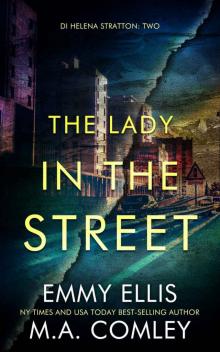 The Lady in the Street
The Lady in the Street All Her Fears: DI Tracy Collier Book 3
All Her Fears: DI Tracy Collier Book 3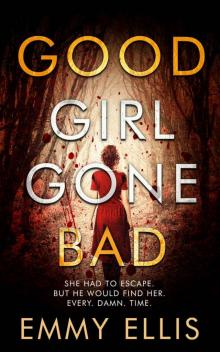 Good Girl Gone Bad
Good Girl Gone Bad Reprisal (The Cardigan Estate Book 2)
Reprisal (The Cardigan Estate Book 2)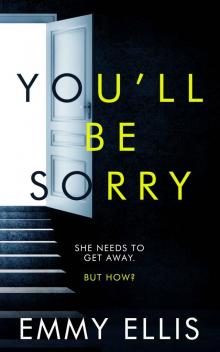 You'll Be Sorry
You'll Be Sorry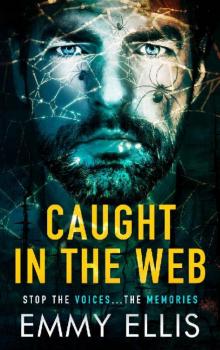 Caught in the Web
Caught in the Web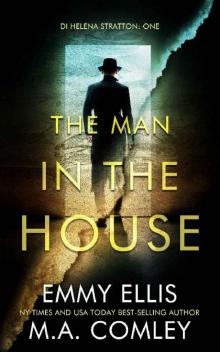 The Man in the House
The Man in the House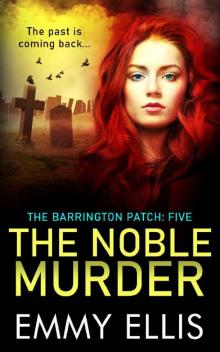 The Noble Murder (The Barrington Patch Book 5)
The Noble Murder (The Barrington Patch Book 5)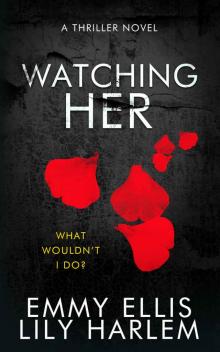 Watching Her: A Gripping Thriller Novel With A Twist
Watching Her: A Gripping Thriller Novel With A Twist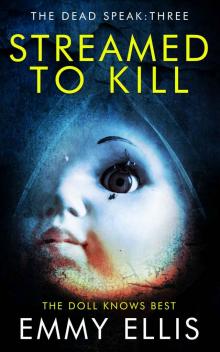 Streamed to Kill
Streamed to Kill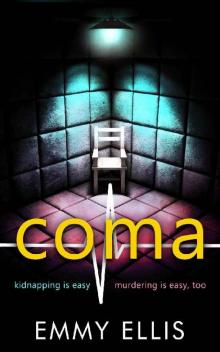 Coma
Coma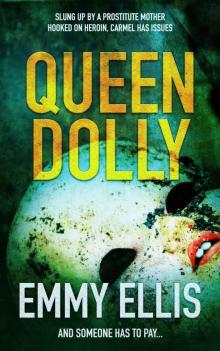 Queen Dolly
Queen Dolly Revenge (The Cardigan Estate Book 1)
Revenge (The Cardigan Estate Book 1)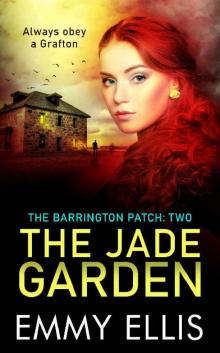 The Jade Garden (The Barrington Patch Book 2)
The Jade Garden (The Barrington Patch Book 2)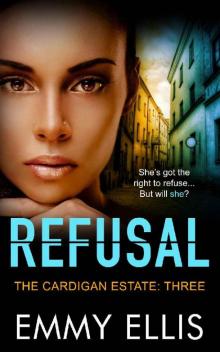 Refusal (The Cardigan Estate Book 3)
Refusal (The Cardigan Estate Book 3) Rejects (The Cardigan Estate Book 5)
Rejects (The Cardigan Estate Book 5)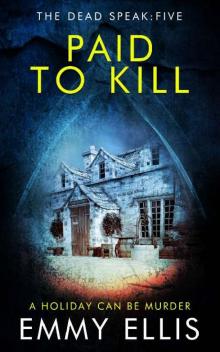 Paid to Kill: A HOLIDAY CAN BE MURDER (The Dead Speak Book 5)
Paid to Kill: A HOLIDAY CAN BE MURDER (The Dead Speak Book 5)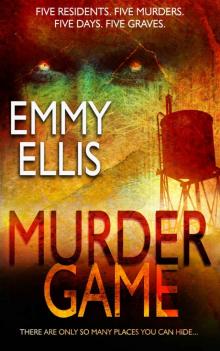 Murder Game
Murder Game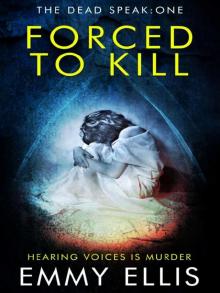 Forced to Kill
Forced to Kill Rivalry (The Cardigan Estate Book 4)
Rivalry (The Cardigan Estate Book 4)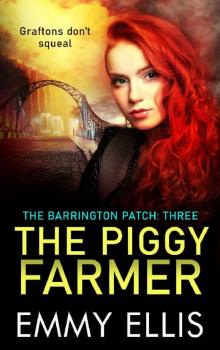 The Piggy Farmer (The Barrington Patch Book 3)
The Piggy Farmer (The Barrington Patch Book 3)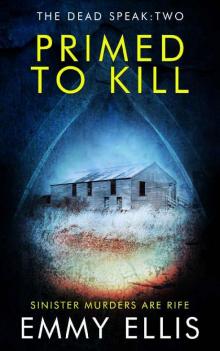 Primed to Kill: SINISTER MURDERS ARE RIFE (The Dead Speak Book 2)
Primed to Kill: SINISTER MURDERS ARE RIFE (The Dead Speak Book 2) Rankled (The Cardigan Estate Book 8)
Rankled (The Cardigan Estate Book 8)